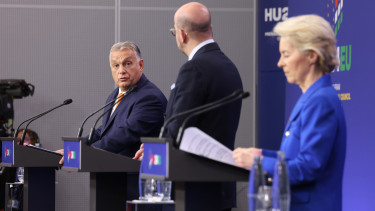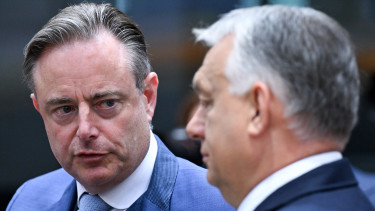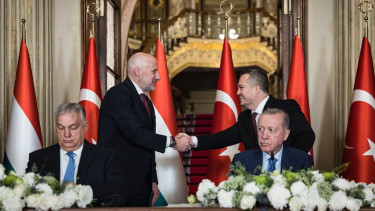Hungary shelves administrative courts not to lose massive EU funds
The justice system created by the bill adopted at the end of last year will be entirely dependent on the Justice Minister, critics say, arguing that anyone going up against the state could be potentially have a government loyalist judge ruling on the case.
The Hungarian Helsinki Committee argues that the system will give excessive powers to Justice Minister without effective oversight of any judicial self-administration body.Local news portal index.hu reminded that as a result of the above the nomination of Justice Minister László Trócsányi for European commissioner was also uncertain, as he had been promoting the new courts earlier. Although the portal does not mention it, Portfolio strongly believes that the unexpected decision to put off the creation of the administrative courts had a great deal to do with
the apparent commitment by several (future) leaders of the EU to link the payment of EU transfers to compliance with rule of law criteria. Consequently, the setting up of administrative courts in 2020 - if the objections regarding them are endorsed - could potentially jeopardise the drawing of all available EU funds for Hungary.
Manfred Weber, leader of the European People’s Party (EPP) and its top candidate in the European parliamentary election, has been constantly campaigning with it and he even made a specific proposal to link EU transfers to compliance with rule of law criteria beyond 2020. Although is highly questionable if Weber will become Commission President, the EPP remains the largest group in the new European Parliament after the election on 26 May. It appears that in order to secure its majority it will have to forge an alliance with the Socialists and the Liberals and the politicians of these two parties have also been vehemently pushing the above linkage. As the EP is a co-legislator in the 2021-2027 EU budget, the balance of power taking shape in the EP must be watched carefully even if heads of state and government decide on the cornerstone figures of the budget framework and on other technical details, rather than the EP itself.The European Parliament has tried to rush forward by sectoral legislation to - in some sense at least - “corner" heads of state and government and give them no choice. Simultaneously, there were signs also in the European Council that the “tying" issue would be removed from the regulatory process of the creation of the budget framework, and so it could be adopted only by qualified majority rather than by simple majority. This way, the Hungarian government could not block the linking the payment of EU funds to rule of law compliance even if it teamed up with Poland.
This was a major risk in respect of Hungary’s post-2020 EU transfers. It is also important, though, that the Council’s legal service found the above linkage legally problematic, saying that “enforcing" compliance with rule of law criteria is (theoretically) possible by another EU legal framework, namely the Article 7 procedure (which has so far failed to achieve anything in the case of Hungary).
The decision to put off the creation of administrative courts may have also been motivated by the ever greater probability that the final deal on the post-2020 EU budget will be reached only during the German presidency due in the second half of 2020; and Germany had repeatedly warned the Hungarian government in the last few months, also about future EU transfers.
In consideration of the balance of power currently being formed in Brussels in the wake of the EP election, it is easy to imagine that the Hungarian government will not proceed with the administrative courts so as not to risk losing EU funds after 2020.
Cover photo by Shutterstock











